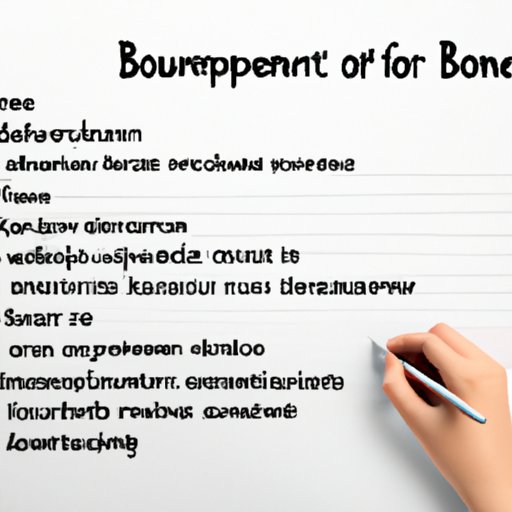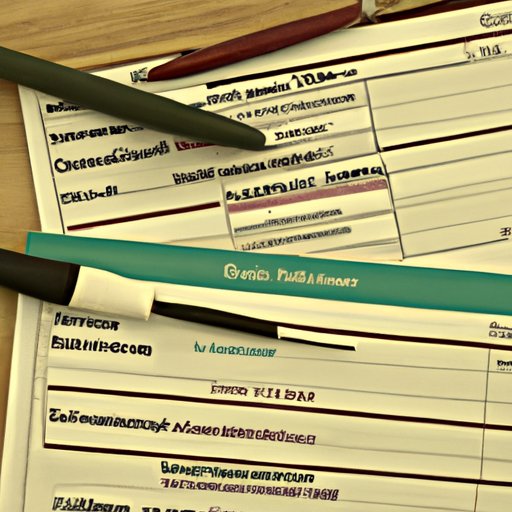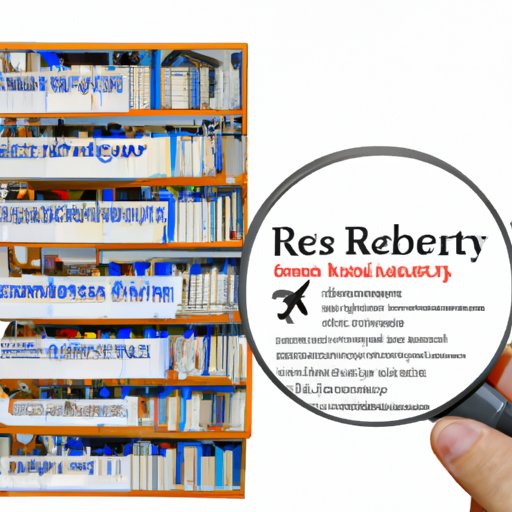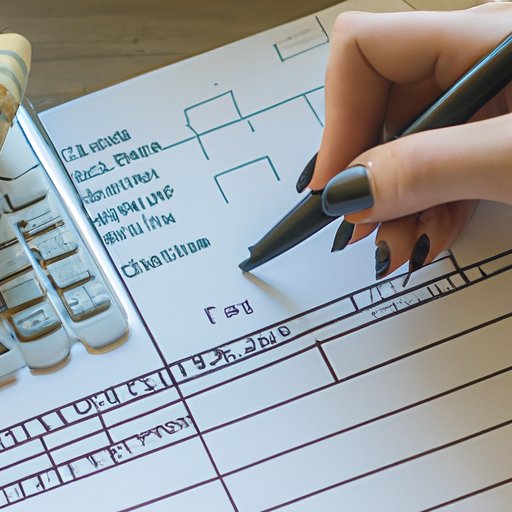Introduction
Opening a bank account is an important step in taking control of your finances. Having a bank account offers a number of benefits that can help you save time and money while also providing a secure place to store your funds. In this article, we’ll explore the benefits of opening a bank account, the requirements for doing so, the different types of accounts available, the process for opening a bank account, and tips for choosing the right one.

Overview of Benefits of Opening a Bank Account
Having a bank account provides a safe and secure place to store your money. According to a study by the Financial Industry Regulatory Authority (FINRA), “depositing money into a bank account is the most common way Americans save their money.” Furthermore, bank accounts usually come with additional features such as debit cards, online banking, and access to ATMs, which can make it easier to manage your money and make transactions.
Additionally, having a bank account may be beneficial when it comes to taxes. The Internal Revenue Service (IRS) states that “having a bank account simplifies tax filing and makes it easier to receive certain tax credits.”

Requirements for Opening a Bank Account
Before opening a bank account, it is important to understand the requirements for doing so. Most banks will require some form of identification, such as a driver’s license or passport, as well as proof of address. Additionally, some banks may require a minimum balance to open an account. This can vary depending on the type of account you are opening and the bank you are using.
Different Types of Bank Accounts Available
When opening a bank account, it is important to consider the different types of accounts available. Here are some of the most common:
Checking Accounts
A checking account is typically used for everyday transactions, such as paying bills or making purchases. Checking accounts generally come with a debit card and may offer access to online banking features. They typically do not require a minimum balance, but may have fees associated with them.
Savings Accounts
A savings account is designed to help you save money. These accounts typically offer higher interest rates than checking accounts, but may require a minimum balance and have fees associated with them. Savings accounts may also come with online banking features.
Money Market Accounts
A money market account is a type of savings account that typically offers higher interest rates than a traditional savings account. Money market accounts may also require a minimum balance and may have fees associated with them.
Certificates of Deposit
A certificate of deposit (CD) is a type of savings account that requires a minimum deposit and offers a fixed interest rate. CDs typically have higher interest rates than other types of accounts, but also come with restrictions on withdrawals and may have fees associated with them.
Process for Opening a Bank Account
The process for opening a bank account is relatively straightforward. Here is an overview of the steps involved:
Gather Necessary Documentation
The first step is to gather the necessary documentation, such as a valid government-issued ID and proof of address. You may also need to provide information about your income and employment.
Choose the Right Bank
Once you have the necessary documentation, you can begin researching different banks to find the one that best fits your needs. Consider factors such as location, fees, customer service, and interest rates.
Complete the Application Process
Once you have chosen a bank, you can complete the application process. This typically involves filling out paperwork, providing the necessary documentation, and making a deposit. Depending on the bank, you may be able to open an account online or in person.
Tips for Choosing the Right Bank Account
Choosing the right bank account is important, as it can help you save time and money. Here are some tips to keep in mind:
Consider Interest Rates
Interest rates can vary widely between different banks and accounts. Compare interest rates to get the best deal.
Look for Added Benefits
Many banks offer added benefits, such as free ATM access, waived fees, and cash back rewards. Look for banks that offer these features.
Ask about Fees
Fees can add up quickly, especially if you’re not careful. Make sure to ask about any potential fees before opening an account.

Resources for Further Research and Assistance
If you need more information or assistance with opening a bank account, there are several resources available:
Financial Institutions
Your local financial institution can provide information and assistance with opening a bank account. Visit your local bank or credit union to learn more.
Financial Advisors
Financial advisors can help you choose the right bank account and provide advice on managing your finances. Consider consulting a financial advisor if you need assistance.
Online Resources
There are many online resources available, such as websites and blogs, that can provide helpful information on opening a bank account. Do your research before making a decision.
Conclusion
Opening a bank account is an important step in taking control of your finances. It offers a number of benefits, including a safe and secure place to store your money, convenience, and access to tax credits. To open a bank account, you’ll need to gather the necessary documentation and choose the right bank. There are several types of accounts available, so make sure to compare interest rates and fees before making a decision. Finally, there are several resources available for further research and assistance.
(Note: Is this article not meeting your expectations? Do you have knowledge or insights to share? Unlock new opportunities and expand your reach by joining our authors team. Click Registration to join us and share your expertise with our readers.)
